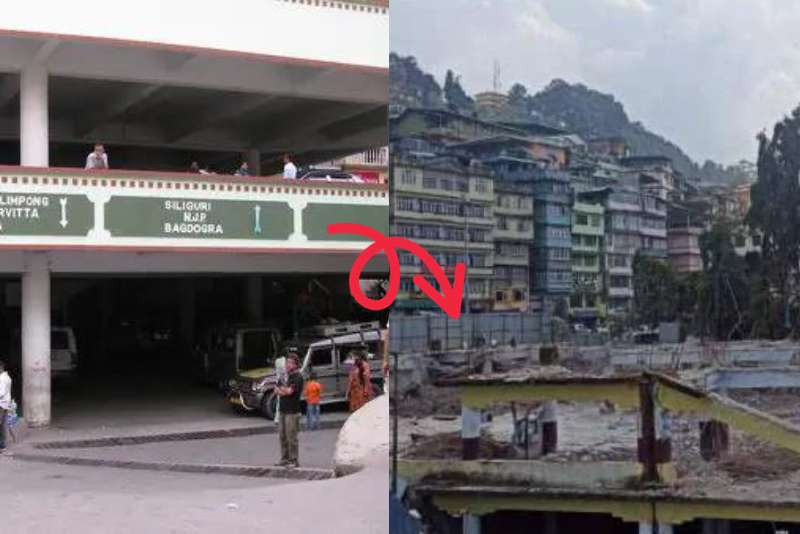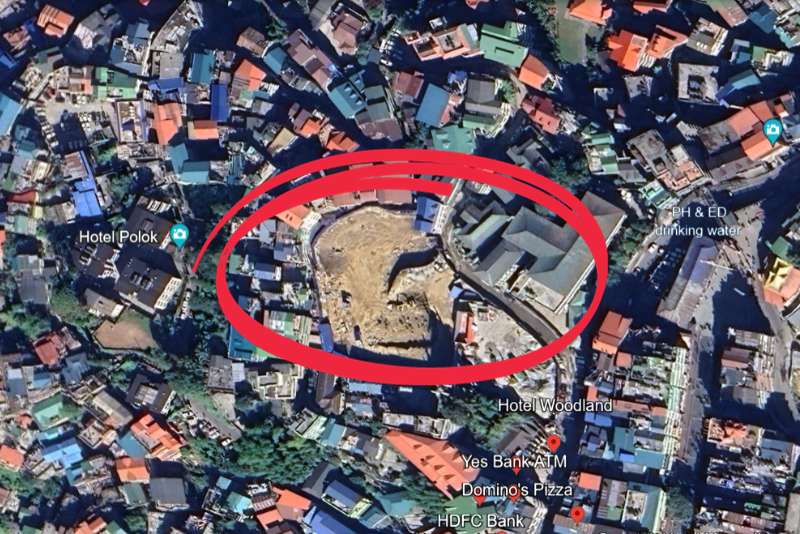
The Supreme Court of India has made a significant decision regarding the Multilevel Car Parking cum Shopping Hub at old West Point, Gangtok. In a Civil appeal filed by Bina Basnett, challenging the National Green Tribunal’s (NGT) order, the Supreme Court has remanded the issue back to the NGT for a fresh hearing.
The Case
On Monday, the Supreme Court heard the case of Bina Basnett vs The state of Sikkim, which revolved around the NGT’s order dated 10.05.2022. The NGT, Eastern Zone Bench, Kolkata, had originally dismissed Bina Basnett’s petition, asserting that the construction had not yet reached 5 ½ storeys. The NGT deemed the application “absolutely premature” and found no environmental degradation or violation of environmental laws at that stage.
The Appeal
Unsatisfied with the NGT’s decision, Bina Basnett filed an appeal in the Supreme Court on September 22, 2023. During the hearing of the appeal on September 25, 2023, the Supreme Court challenged the NGT’s finding that the proceedings were premature due to the construction not reaching 5½ storeys. The Supreme Court clarified that the construction had indeed commenced after receiving the necessary permissions. However, it emphasized that it wasn’t expressing an opinion on the case’s merits but set aside the NGT’s order and reinstated O.A. no. 38/2022/EZ.
The Remand

The Supreme Court’s decision entails a fresh examination of the case by the NGT, free from any influence of the previous order. All parties involved are ordered to appear before the NGT on October 18, 2023.
In its concluding remarks, the Supreme Court highlighted that the remand order allows for a thorough re-evaluation of the case, with all pleas and contentions left open. The appeal was allowed without imposing any costs on the parties.
This development signals a new phase in the legal proceedings surrounding the Multilevel Car Parking cum Shopping Hub in Gangtok, Sikkim.
Also Read: Dalai Lama’s Historic Visit to Sikkim Amidst India-China Tensions
Takeaways
Crucially, the Supreme Court refrained from ruling on the merits of the case itself. This gives the NGT full flexibility to independently weigh the facts and evidence. The NGT can determine if environmental laws were indeed violated or whether sustainable construction norms were flouted. It can also evaluate if the construction has led to any environmental degradation.
At the same time, the Supreme Court has not barred the project proponents from continuing construction in adherence to necessary approvals. However, the outcome of the NGT’s fresh hearing will have a bearing on the project’s future progress.
By providing specific directives without delimiting the scope, the Supreme Court has upheld principles of natural justice and due process. The remand reflects the apex court’s recognition that given the case’s complexities, the NGT is best positioned to undertake a comprehensive review. All parties will now have another chance to argue their position.
The law must be allowed to take its course and the truth revealed. This balanced ruling allows for exactly that, while giving primacy to environmental concerns. The case will be watched closely as it develops renewed legal and civic momentum.
References:
IN THE MATTER OF Dr. Bina Basnett Versus State of Sikkim and Ors 1
IN THE MATTER OF Dr. Bina Basnett Versus State of Sikkim and Ors 2
Gangtokian Web Team, 28/09/23
















































